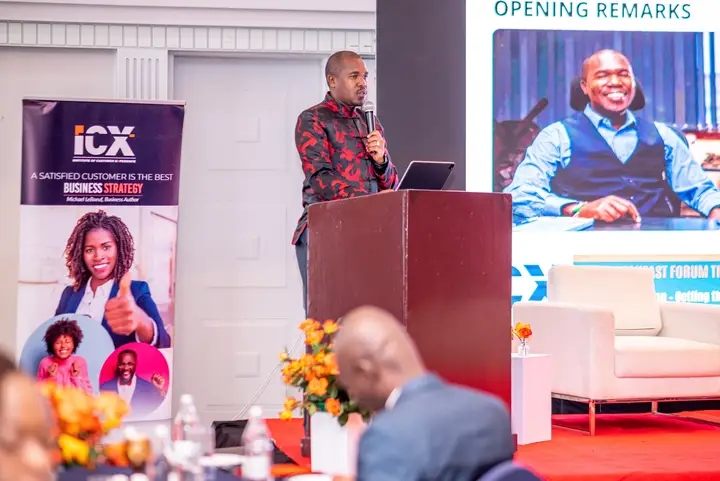By Malachi Motano
Covid -19 pandemic disrupted a lot of operations across many sectors of the economy and Sacco sector was one such industry. To understand how the pandemic really affected the Saccos space in Kenya, the volatility, lessons learnt and remedies to adopt to caution future disruptions, Cynthia Wandia, core founder and CEO of Kwara, a digital banking platform for Saccos offering a modern way to run businesses as well as giving members easy ways to transact with Saccos, virtually hosted Joseph Njenga the CEO of Tamara Youth Sacco, and Sammy Githiaka, chairman of Oxford Sacco to discuss Service delivery post Covir-19 pandemic and the changing face of operations in Saccos
Cynthia: Thank you so much Sammy and Joseph and to kick it off, I will start with a question to situate you to this discussion.
And this question goes to both of you. Covid 19 and its disruptions necessitated a lot of changes in operations of Sacco management.
Take us through some of the changes you had to employ in your various Saccos.
Joseph: Yes, at Tamara we did focus on moving to a digital platform. With the lockdown people could not meet in person so whenever they wanted to apply for loan we had them joining our digital portal, look at what they have, look at their statements, and continue with the conversation on calls so that we can be able to assist them
Cynthia: Anything else you may want to expound for example changing the policy?
Sammy: We had to be flexible enough to redo our products, services and even the credit terms, just to encourage members to able to access the loans, a decision we arrived at after realising that members were shying away from taking loans maybe for fear of the unknown next course of action.
We had to modify some of our products and services for easy accessibility by members.
We also had to open a whatsapp group for constant communication with our members.
Joseph: Thanks, our situation was much similar to what Sammy painted. We had to change the way we interact with members and so our whatsapp group became more active for all communications with them and staff since nobody was commuting.
Because some of our members were victims of the pandemic, we had to avoid charging usual interests since it was like an extra financial strain.
We had to digitise our processes and also diversify our operations not just to focus on the tradition way.
Cynthia: Taking another view as the leaders of the Sacco. What are some of the immediate worries that you had as soon as the situation began?
Sammy: What scared us much was the risk of defaulting since we knew some of our members had lost jobs while others were taking pay cuts.
Just within three months we had noticed a challenge in contribution. Another worry was poor loan uptakes by members due to the many uncertainties that came with the pandemic.
Cynthia: What was your immediate concern when you had of the restrictions and remittance began to shrink?
Joseph: Our immediate concern was that the ratio of non-performing loans would go up because we focus on the youth whose small businesses in the informal sector run at night and you can remember at some point curfew was beginning early around 7 pm so, their businesses were very much affected lowering their remittance.
Another concern was not being able to disburse more loans. We were also scared whether the employer would be able to remit the deductions from employees.
Cynthia: You have mentioned something worth exploring thus membership growth, how did you manage to overcome this concern around growing membership, did you manage to grow your membership?
Joseph: Not by much to be honest, but we did try to reach out to various Chamas, because we thought that we were in the same line of business.
We encourage them to join the Sacco by taking the products that we have, but during the pandemic especially at the beginning it was very hard, however the situation is slowly improving as things get better
Cynthia: Sammy, your Sacco being employer base, how did you manage your member numbers, what conversation did you have with members to make them understand that the Sacco is there for them and were you able to attract new members?
Sammy: Thank you Cynthia as you say our Sacco is employer based and so we didn’t have many cases of members leaving or growth, however, this year we only managed to attract the people who had left either employment or the society at that time.
Cynthia: What is the role of technology in cushioning the sector against these effects and unlocking a little bit forward?, What is the role of technology in ensuring continued service delivery even in this new world that we are living in?
Sammy: For us initially, we didn’t have technology as our main platform but we were lucky last year to get a digital platform.
What that changed is because the company is registered in Nairobi, staff basically are people who live in Nairobi.
And now when they were told to go and work from home majority of course went away and could access services through the digital platform.
Technology helped us to reach our members, enabling them to access what they needed to know about their savings access products and services, general information as well as receiving their statements online.
Joseph: Beforethe pandemic we were signing statements for our members on a monthly basis which I don’t think was very convenient to our members.
Like Sammy, we were also able to procure a digital platform in the course of the year and members were now able to access their statements, services in real time and quicker loan processing.
With digitization we have become agileenough tosee the trends in members deposits and how they are repaying their loans that advises us on how to work with them.
Cynthia: Dear panellists, even as we conclude, what are some of the biggest take home lessons your Sacco learnt and how is that informing decision making in the management of your Saccos today, the mind-set shift?
Joseph: The first take home would be more of an internal one so better cash flow management on our side.
Before the pandemic the assumption was that business would just continue as usual but we so that anything can happen and put you in a condition you never envisioned.
Secondly, ee need to make members enjoy similar experience, enabling them to get loans faster to enable them equally repay faster.
Enabling them to access our products from everywhere so, automate or digitise as much as possible.
Thirdly, we need to market ourselves better because I think most of the products and services Saccos in Kenya provide are much better than what may be available on the online loan aps.
Fourthly we need to innovate, improve our products to avoid usual or traditional products.
We must learn how the customers are behaving and new market which means we had to transact all businesses online because that is the only way we could reach everyone.
The pandemic is still here with us and even if it the goes, I don’t think we shall stop, so for Oxford society, we agree to embrace technology.
I know even if we go back to the office majority will apply for loans online.
The other thing we notice is that when there is panic, people really don’t know what to do so, during that time we had to do a lot of research as management, constantly seeking solutions that can help members to make decisions faster.
Lastly as a Sacco, we must remain flexible so that it can also be able to adopt or adjust as fast as possible to the changing economic situation to earn higher return and for growth and sustainability.
Cynthia: Thank you my panellists, that was so comprehensive and helpful in addressing service delivery post Covid-19 pandemic.





